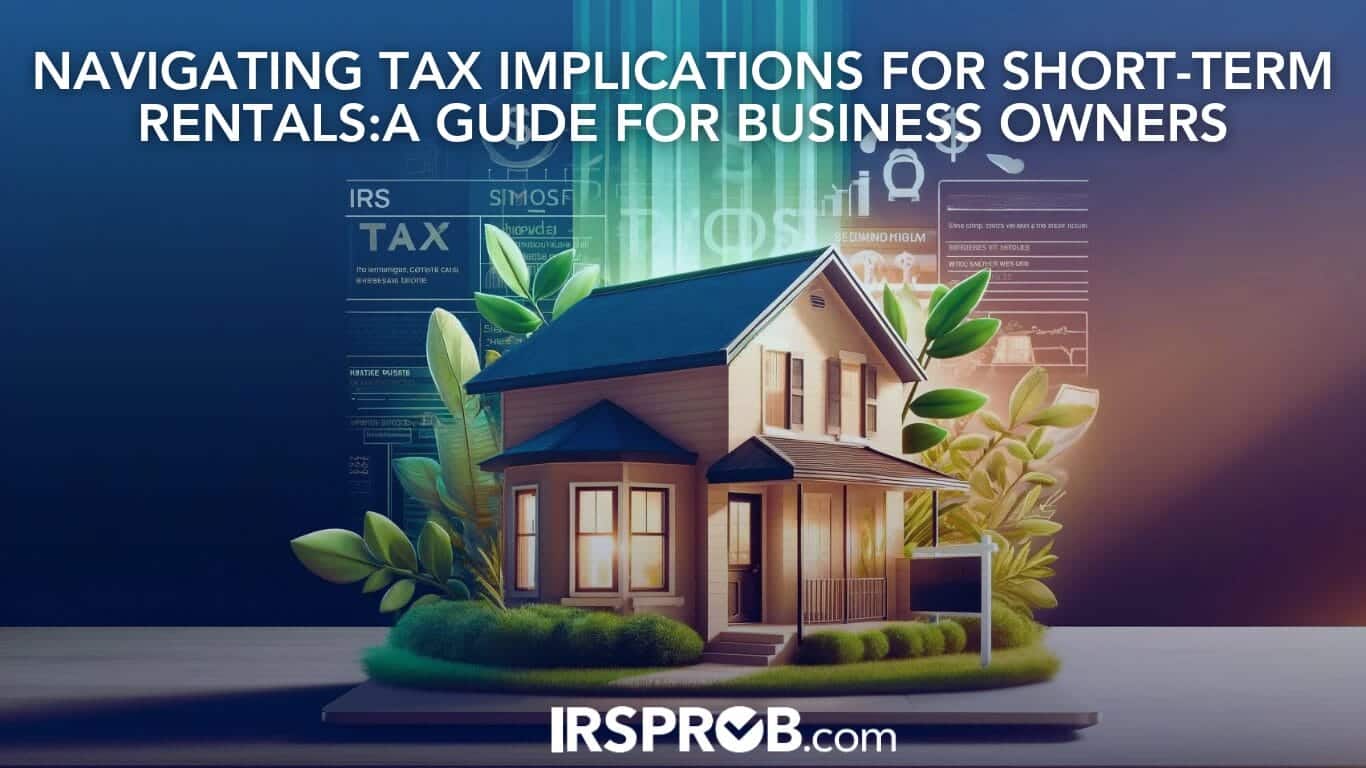
In recent years, the short-term rental market has exploded, with platforms like Airbnb and VRBO offering property owners an easy way to generate income. However, whether you’re renting out a room in your home or a vacation property, it’s essential to understand how the IRS views these arrangements and the tax implications that come with them.
In this blog post, we’ll break down the key points every business owner needs to know when it comes to short-term rental income, expenses, and tax obligations.
Rental Income: What Must Be Reported
When you rent out a property or even just a room in your home, all rental income must be reported on your tax return. However, certain situations can result in tax-free income. For example, if you rent out your property for 14 days or less in a given year, that rental income may be tax-free, and you are not required to report it to the IRS.
For instance, imagine you rent out your home during a local event, such as a major golf tournament, for six days and earn rental income from it. Under the 14-day rule, this income is tax-free as long as the rental period is 14 days or fewer in total for the year.
Mixed-Use Properties: Personal and Rental Use
If a property is used for both personal and rental purposes, the IRS considers it a “mixed-use property,” and expenses must be divided between the time it was used for personal purposes and the time it was rented. The personal use portion of expenses like mortgage interest and utilities cannot be deducted as business expenses but can be itemized as personal deductions.
For example, if you rent out your vacation cabin for 160 days in a year but use it for personal purposes for 17 days, the IRS considers this a mixed-use property. You must allocate the expenses based on the time it was rented versus personal use. In this case, the ability to deduct rental expenses may be limited to the amount of rental income you received, and you cannot deduct a loss if your expenses exceed that income.
Providing Substantial Services
If you provide services such as cleaning, meals, or entertainment to renters, the IRS might consider your rental activity as a business. This means not only will the income be subject to regular income taxes, but it may also be subject to self-employment taxes.
For instance, if you offer breakfast and daily housekeeping to your short-term renters, the IRS would likely classify your rental as a business, not merely a rental activity. In this case, you would need to treat the income accordingly and may be responsible for paying additional taxes.
Allocating Expenses: What’s Deductible?
When renting out part of your property, such as a room in your home, you can deduct a portion of expenses related to that rental use, such as mortgage interest, utilities, and maintenance. However, these expenses must be prorated based on the percentage of your home that is rented.
For example, if 20% of your home is rented out (e.g., a 300-square-foot room in a 1,500-square-foot house), 20% of your utilities, mortgage interest, and taxes can be deducted as rental expenses. Any expenses directly related to the rental portion, such as repainting a rental room or replacing a door, are fully deductible.
Tax-Free Rental Use for 14 Days or Less
If you rent out your property for 14 days or less during the year, that income is tax-free. However, keep in mind that if the property is rented for more than 14 days, all rental income and related expenses must be reported.
This rule can be advantageous for property owners in high-demand areas where short-term rental rates are particularly high during peak seasons. Renting your home for a week or two can bring in a substantial income without creating a tax liability, as long as you stay within the 14-day limit.
Common Mistakes to Avoid
One of the most common errors business owners and property owners make is failing to allocate personal and rental use properly. Misclassifying a property as solely a rental when it’s actually a mixed-use property can lead to inaccuracies on your tax return and potential penalties.
Another pitfall is neglecting to report income from short-term rentals entirely, particularly if you’re operating on a platform like Airbnb or VRBO. The IRS receives information from these platforms, and failure to report the income can lead to audits and fines.
Conclusion
Owning a short-term rental property can be a great source of income, but understanding the tax rules is crucial. Whether your property is used solely for rental purposes or is a mixed-use property, proper tax planning can help you avoid unnecessary tax liabilities. Always consult with a tax professional to ensure you are maximizing your deductions while staying compliant with IRS regulations.
If you have any questions about how short-term rentals may impact your tax situation, reach out to our team at IRSProb.com for personalized advice.







